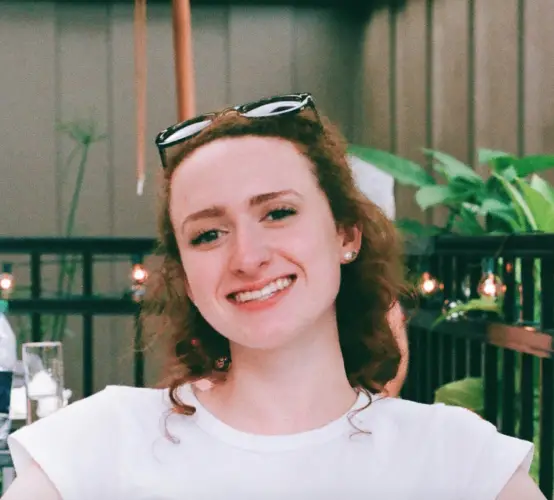On Sunday, fashion enthusiast and author Cora Harrington sparked a long discussion on Twitter about her ideas concerning “thin privilege.” Harrington posted a Twitter thread of nearly a dozen tweets discussing the idea, with the original tweet gaining 20,000 likes, and started quite a heated debate — hundreds of tweets of backlash were directed toward her.
In the beginning of her thread, Harrington defined thin privilege as being perceived as thin and having the ability to choose from many clothing options, regardless of where you are shopping.
“Thinness isn’t a feeling. If other people perceive you as thin, you are thin. If you are able to walk into any clothing store and expect to see a wide range of options in your size, you are thin.”
Hey, you don’t have to “feel thin” to have thin privilege.
Thinness isn’t a feeling. If other people perceive you as thin, you are thin. If you are able to walk into any clothing store and expect to see a wide range of options in your size, you are thin.
— Cora Harrington (@lingerie_addict) July 22, 2018
At first glance, the thread appears to be an attack on the fashion industry and its lack of plus size options, but Harrington changed directions to compare thin privilege with never experiencing being told to lose weight, easily being able to get modeling gigs and not being seen as “disgusting.”
To summarize the thread, she said: “Once again: all thin privilege means is that your life isn’t made more difficult *because of your weight.* It means you aren’t defined things like pay raises, healthcare, and airline seats because of your weight.”
It doesn’t mean your life is easy or that no one ever made fun of your appearance or that you can find everything you want in your local Target. It means societal discrimination and prejudice does not target you for being thin. It means your weight/body type are seen as “normal.”
— Cora Harrington (@lingerie_addict) July 22, 2018
After receiving a considerable amount of backlash, Harrington concluded the series with an additional tweet. “It doesn’t mean that your life is easy or that no one has ever made fun of your appearance … It means your weight/body type are (sic) seen as ‘normal.’”
Harrington herself will soon be releasing a book on how to love lingerie, so she is familiar with the fashion industry, as well as the modeling industry. Her book, “In Intimate Detail: How to Choose, Wear, and Love Lingerie,” is scheduled to be released in August.
Soon after Harrington published the thread, she was flooded with tweets attacking her argument. Many of those in opposition focused on the fact that people on both ends of the weight spectrum struggle finding clothes, and those considered “too thin” receive comments about how they should gain weight.
One Twitter user, whose tweets are now protected, said: “How dare anyone have the audacity to insist that thin privilege is a thing. Some thin people try to gain [weight] and can’t, some thin people are so thin because of eating disorders, and some thin people work hard to be healthy and shouldn’t be shamed for that.”
Examining the tweets more closely, it appears that Harrington is not referencing people who are “too thin,” but just those who are considered “average size.”
Many of the points that Harrington made in her Twitter thread would also apply to people who are considered “too thin,” as the dangers of eating disorders, not being able to find your size and receiving negative comments are just as common if you are underweight, but it is more common for people who are not “thin” to be discriminated against because of their weight.
Harrington was not attacking those who are thin; she was just expressing how those who are considered “average” do face some privileges.
Although “thin privilege” is not exactly comparable to other more common privilege gaps, there are certain stereotypes and insults associated with people who are “not thin,” and spreading awareness against the difficulties of different body types is important.
If you or a loved one struggle with any type of eating disorder, you can seek help by contacting the National Eating Disorders Association at 1-800-931-2237.

















